The world is now moving through an epoch-shifting transition, and a new system will be brought online as the $1.2 quadrillion derivatives time bomb that has cancerously taken over the western economy crashes.
Now, this may not be a bad thing, as the system created over the dead bodies of JFK and his brother (which some have dubbed ‘post-industrial society’, consumerism or globalization) was always an atrocity premised around a Malthusian paradigm that rejected America’s historic tradition of morality and technological progress.
However, as the multipolar alliance races to bring a system of win-win cooperation, large scale development and long term thinking into reality, it has become increasingly clear that the New World Order priesthood is no longer the only game in town.
In the following article, I would like to clarify the principled difference between the oligarchical closed system of transhumanism and the foundation for open systems now coming alive through the Russia/China led Multipolar Alliance, which President Trump fought to unite with the USA, and which will have to occur after the oncoming elections if the world is to survive a tragedy that has the very real possibility of ushering in a new global dark age for centuries.
Closed Systems, in Brief
If humanity’s new system is presumed to be of a closed nature, then I am sorry to tell you that fascism will be necessitated as the ultimate governing mechanism of the elite.
The reason for this depressing fact is simple.
In all closed (ie: finite/bounded) systems, the number of people alive will always tend to consume more energy than the system itself creates over time as resources, and agricultural potential is slowly drawn down and entropy increases.
In such a world, someone has to decide who receives those ever-diminishing returns of resources, and who are the useless eaters to be sacrificed “for the greater good” of the system.
This is the Hobbesian world that such misanthropes like Thomas Malthus, T.H. Huxley, Henry Kissinger and Al Gore live in. In true Pygmalion fashion, these cynics will use any and all political clout at their disposal to force society to adhere to their obsession with “balance”, “mathematical equilibrium” and perfect linear predictability. The self-professed “alphas” of these sorts of master-slave societies are committed to forcing the “might-makes-right” laws of the jungle onto humanity.
In the closed-uncreative world of such a misanthrope, imbalance is considered both un-natural and evil. Imbalance is wild. It is unpredictable. It is open.
Based on their words and actions, Putin, Xi, Modi, Bashar al Assad, Mohammed bin Salman, and Donald Trump do not think this way.
Open Systems, in Brief
As a short example of my meaning, listen to President Xi describe the fundamental principle of open system economics during a 2016 speech to the CPC central committee:
“Coordinated development is the unity of balanced development and imbalanced development. The process from balance to imbalance and then to rebalance is the basic law of development. Balance is relative, while imbalance is absolute. Emphasizing coordinated development is not pursuing equalitarianism, but giving more importance to equal opportunities and balanced resource allocation.”
By placing imbalance as the absolute factor, and balance as merely relative, Xi is defining a process of progress built upon creative leaps, with each higher system requiring a reasonable balance/distribution of resource use, but without ever becoming reliant on that particular set of finite resources.
Putin expressed his understanding of this principle in his own way when he discussed the importance of unlimited energy and growth potential attainable through the harnessing of fusion power:
“Potentially we can harness a colossal, inexhaustible and safe source of energy. However, we will only succeed in fusion energy and in solving other fundamental tasks if we establish broad international cooperation and interaction between government and business, and join the efforts of researchers representing different scientific schools and areas.
If technological development becomes truly global, it will not be split up or reined in by attempts to monopolize progress, limit access to education and put up new obstacles to the free exchange of knowledge and ideas. With their help, scientists will be able to literally see nature’s creation processes.”
Programs like China’s Belt and Road Initiative (and its space, polar, health and information extensions) has not only won over 135 nations to its framework, but this program is entirely rooted in open-system thinking.
Within this framework’s operating system, there is no presumed fixed limit to resources or end point to the progress that nations can create if certain principles are adhered to.
At the heart of these vital principles is found the moral concept of “win-win cooperation,” or as China’s former president Sun Yat-sen called it in his Three Principles of the People, the Principle of “Right makes Might”.
Sun Yat-sen understood in 1924, as Presidents Xi and Putin do today, that if a nation adheres to win-win/right-makes-might thinking, then that nation will never lose the Mandate of Heaven (Tianxia).
In the Western matrix, this principle is expressed beautifully by the Principle of Westphalia, which established the first modern nation states in 1648 premised around the principle of the “Benefit of the Other.” When Kissinger, Brzezinski or Blair speak of a “post-Westphalian age”, it is this fundamental principle that they are attacking more than the mere existence of national borders.
This principle is again reflected in the UN Charter, which was designed by the anti-colonial President FDR “to achieve international co-operation in solving international problems of an economic, social, cultural, or humanitarian character, and in promoting and encouraging respect for human rights and for fundamental freedoms for all without distinction as to race, sex, language, or religion, and to be a center for harmonizing the actions of nations in the attainment of these common ends.”
FDR’s early death and the British-Deep State takeover of America over his dead body prevented these ideals and open system dynamics from ever coming to life.
As long as nations are empowered to stand on their own feet, develop full spectrum agro-industrial economies, and if people benefit by developing new skillsets, and if new technologies and new discoveries in science are encouraged rather than sabotaged (as has been the practice under the Might-Makes-Right Darwinian laws of gobble-ization), then potential for human perfectibility is as boundless as our ability to discover, create, plan and inspire future generations.
Some Points of Mutual Interest
Now there are an array of domains, which all nations of the U.N. Security Council can focus on during this period of intense crisis that would tie civilization’s interests into open system thinking benefiting all nations and people.
To end this paper, I wish to outline several of the most fruitful topics to be tackled at upcoming summits, which will best define the coming century (or more) of cooperation and growth:
Space Diplomacy, Asteroid Defense, Arctic and Far east development, nuclear energy.
Space Diplomacy
America’s successful return to manned space flight on May 28, 2020 was more than just another space launch, but rather one important component of a much larger commitment illustrated by the May 15, 2020 Artemis Accords to not only send humans back to the Moon for the first time since 1973, but to permanently develop a Lunar and Mars-based economy with a focus on international cooperation.
This outlook dovetails Russia’s commitment for permanent lunar colonization and resource development, which began with Luna 25 in 2021, followed by Luna 26, 27 and 28 soon thereafter, with a plan to have a permanent manned base along with the Chinese in early 2030.
Although banned from the ISS and U.S.-cooperation since 2011, China has become a pioneer in space, with a tight alliance with Russia on lunar cooperation signed in September 2019. China’s own Chang-e program has resulted in landing on the far side of the moon, with plans for colonization in the coming decades, as well as the development of Helium-3 mining for fusion power.
Asteroid Defense
Faced with the two-fold threat of NATO military encirclement on earth and asteroid collisions from abroad, the former head of Roscosmos, Dimitry Rogozin made headlines in 2011 by reviving the concept for a joint U.S.-Russia controlled defense system first announced by President Reagan’s 1983 Strategic Defense Initiative.
Rogozin’s 2011 version (titled the Strategic Defense of Earth) now called for turning humanity’s arsenal of atomic weapons away from each other and towards the grave danger of asteroid collisions, for which we are woefully unprepared. Introducing this topic into the emerging joint U.S/Russia working groups on arms control set to begin in mid-July would contribute in powerful non-linear ways that cannot be calculated by any linear standard of measurement.
This vision has been echoed by China, as well as the European and Japanese space agencies.
Arctic and Far East Development
In 2007, Russia revived a 150-year-old idea that once had the support of leading republicans of Lincoln’s 19th century America to unite rail lines in America and Eurasia through the Bering Strait crossing in the form of a 65 mile tunnel.
Russia again re-emphasized its commitment to building this $64 billion project in 2011. With China’s Polar Silk Road having extended the traditionally east-west development corridor into the Arctic, and as China and Russia have increasingly merged the Belt and Road Initiative with the Eurasian Economic Union, this new development dynamic offers incredible economic opportunities for all Arctic nations, and also an escape from military confrontation.
As I outlined in The Strategic Importance of the Alaska-Canada Railway, Donald Trump’s executive order reviving the Alaska-Canada railway was directly tied to this strategic vision for Arctic cooperation, in opposition to the closed system warhawks promoting a militaristic program against Russia and China in the Arctic.
Putin’s Far East Development Plan
Part in parcel with this initiative comes President Putin’s Far East development plans as a “21st century national priority” for Russia.
The development of new cities, mining, transport corridors and oil and natural gas of Russia’s Far East represent one of the greatest boons for economic investment during the coming century and already features an array of partners from China, Japan, South Korea, India and other APEC nations.
Putin’s 2018 proposal that the USA join in this project of win-win cooperation is important not only because it would build trust, create business opportunities and re-establish the lost art of long-term thinking, but would also help link up western businesses into partnership with the Asia Pacific development process now being shaped by China’s Belt and Road Initiative.
Although tensions have been enflamed to schism China and India from cooperating directly on the BRI, India’s embrace of Russian Far East development investments has created a non-linear flank, which can help bring these two Asian giants into harmony.
Only the tip of the iceberg…
Overall, there are many other points of common benefit shared by nations committed to a Multi-Polar “open system” future, including education/cultural exchange, fission/fusion energy research and counterterrorism.
If Russia, America, China and other nations of the UN Security Council and BRICS were to apply their best minds to solving these problems rather than falling into a new arms race, then not only would either country benefit immensely, but so too would humanity more broadly.
This article was loosely based on a presentation delivered in Basel Switzerland this year:
Matthew Ehret is the editor-in-chief of The Canadian Patriot Review, Senior Fellow of the American University in Moscow and Director of the Rising Tide Foundation. He has written the four volume Untold History of Canada series, four volume Clash of the Two Americas series and Science Unshackled: Restoring Causality to a World in Chaos. He is also co-host of The Multipolar Reality on Rogue News and Breaking History on Badlands Media where this article was first posted




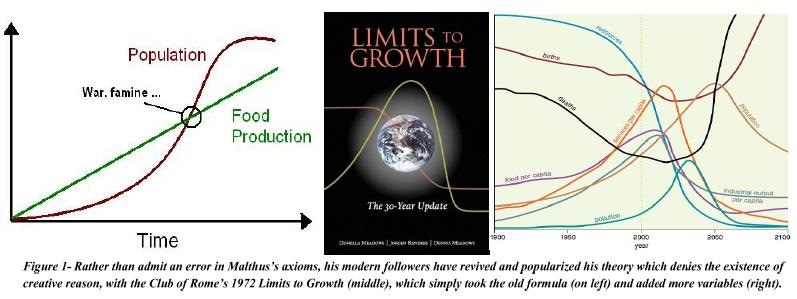
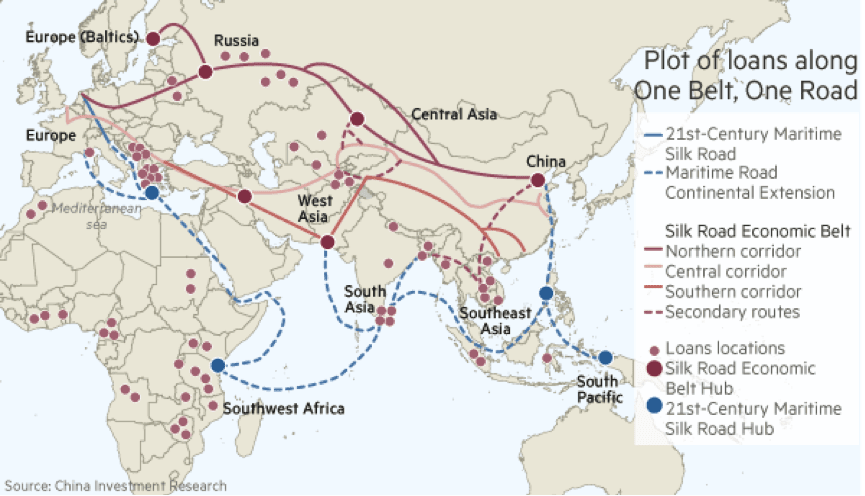
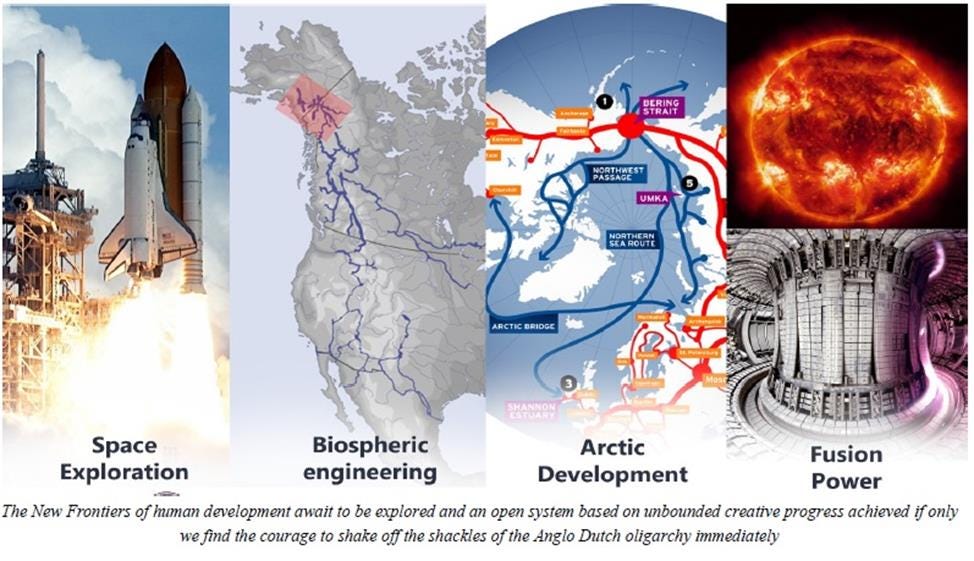
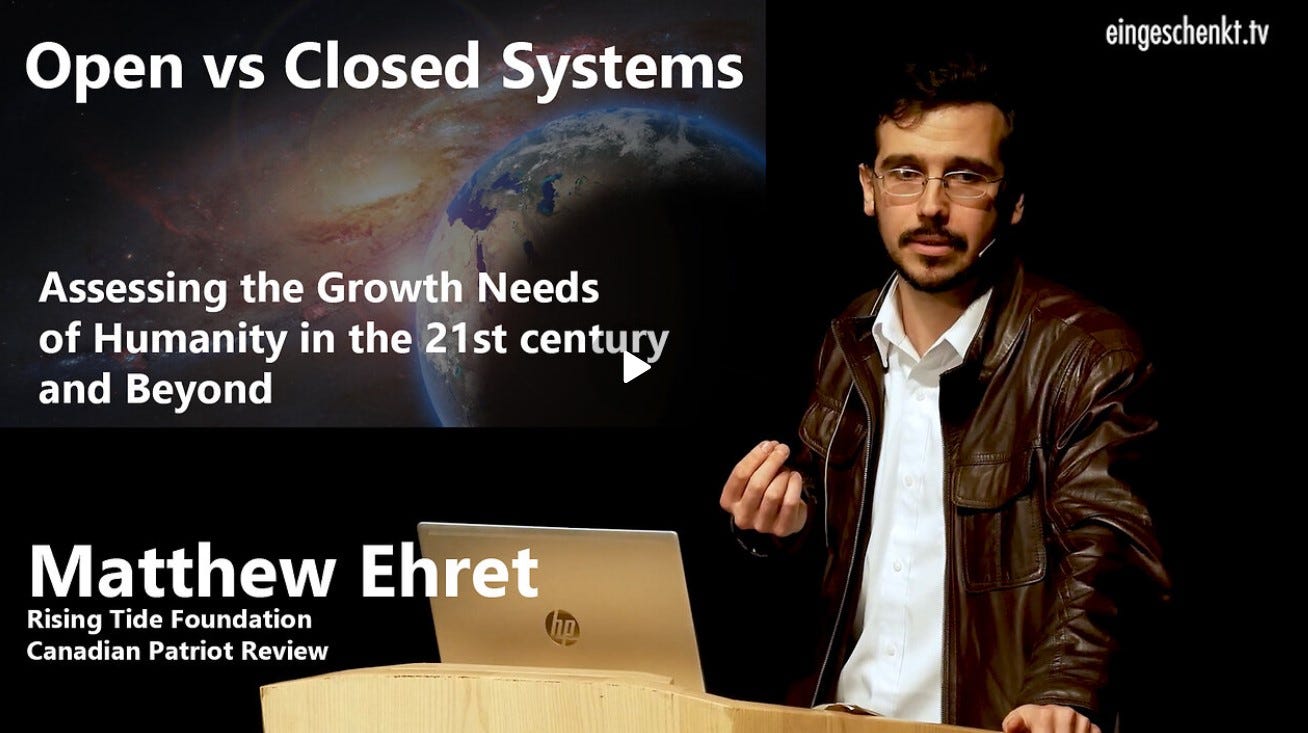

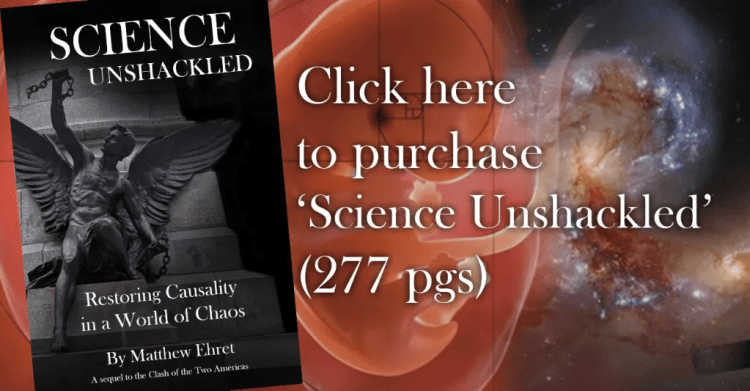


Recently I've been scratching under the hood of Fascism, corporate-government "perfection" as Mussolini described, and discovered a name I was familiar with, but not in the same lane of thought I first met him. Vilfredo Pareto. I first met his name from history in learning about finance, economic theory, primarily the Pareto Principle, the "80-20 Rule" of distributions:
(preemptive apology for Wiki source, it's controlled narrative, especially controversial subjects, but for quick primer that facilitates deeper research it's a good place to start on more obscure subjects.)
https://en.wikipedia.org/wiki/Pareto_principle
https://en.wikipedia.org/wiki/Vilfredo_Pareto
He's also known for his theories on optimization, the Pareto Optimal:
https://en.wikipedia.org/wiki/Pareto_efficiency
This is a very interesting historical figure. Strong socialist leanings, but he kind of meandered in his philosophical thinking over his lifetime. Mussolini studied under him in 1903 as a young activist. Wiki's presentation is that Pareto grew disillusioned with socialism, other ideas he once championed, including early ideas of fascism, but it's open to interpretation. He unquestionably influenced many contemporaries and theorists since his death.
I was previously aware of his 80-20 work, but that's all. Then while reading Mussolini's biography I saw his name. And discovered he had many ideas about sociology that fit into much history and philosophy that you share.
I believe this book is worth a read over:
https://en.wikipedia.org/wiki/The_Mind_and_Society
Which includes his ideas about Social Cycle theory:
https://en.wikipedia.org/wiki/Social_cycle_theory
And also brings home his ideas about the Circulation of Elites:
https://en.wikipedia.org/wiki/Circulation_of_elites
It is in the Circulation of Elites that he expounds on ideas about revolutions. And how it's the same people in power before and after a revolution. They just change teams. This dovetails into the need to break the cycle of human organization that keeps the same people in charge no matter what the ideology is called.
Pareto's theory is consistent with the ideas of big political theory influencers like Harold Lasswell and Noam Chomsky. Of note, in Chomsky's Manufacturing Consent is this idea:
https://chomsky.info/19890315/
"You know, it’s very striking that continually people move from one position to the other, very easily. And I think the reason for the ease is partly because they’re sort of the same position. So you can be either a Marxist-Leninist commissar, or you can be somebody celebrating the magnificence of State capitalism, and you can serve those guys. It’s more or less the same position. You pick one or the other depending on your estimate of where power is, and that can change."
FF - I believe this is humanity's biggest challenge we face, as well as our biggest opportunity. I believe his work is worthy of greater investigation to those ends. And I'm curious as to your thoughts about Pareto, how his work and ideas may interact with your ideas and work?
Very Interesting and hopeful. But I don't know if it's very likely.
I would really like to see/hear you, and Jeffrey Sachs collaborate on this further.